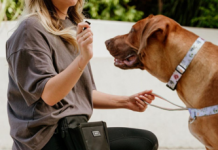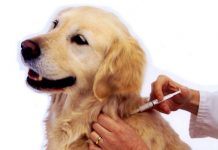 As an owner, you should always look after your dog and monitor their health throughout the year. However, the cold weather, the rain, and the dark days during the winter period can be a particularly tough time for doggies. Here we have decided to come up with a few tips on how you can look after your canine friends during the winter.
As an owner, you should always look after your dog and monitor their health throughout the year. However, the cold weather, the rain, and the dark days during the winter period can be a particularly tough time for doggies. Here we have decided to come up with a few tips on how you can look after your canine friends during the winter.
Brave the Miserable Weather and Take Your Dog on Walks
Dogs need to go out for walks daily; you will need to brave the gruesome winter weather, put on some appropriate comfortable, warm clothing, and take your dog out for a wander. How often your dog needs to be walked depends on factors such as their age, breed, size, and health. Most dogs in good shape should be able to handle 20-30 minute walks every day, and dogs in peak fitness will be able to walk up to 2 hours a day.
The benefits of walking your dog include health benefits such as preventing them from becoming overweight, exercising their muscles and joints, and generally keeping them well energized and fit and healthy. Walking your dog regularly will also help keep them well-socialized and capable of interacting and engaging appropriately with humans and other dogs. Going on walks is important for socializing puppies; however, you can only walk puppies after they have had their final vaccination boosters and when they are around 16-18 weeks old.
Wrap Your Dogs Up Warm
If you are taking dogs out for walks in bitterly cold temperatures, or you notice your dog is feeling the cold in your home, wrap your pooch up in a snug dog coat that goes around their body to keep them well-insulated and toasty warm.
Keep Them Dry
Wet and muddy dogs coming in from walks outside can easily fall sick quickly. Clean and dry them with a spare towel and make sure they have a comfy padded bed to relax on.
Keep a Good Eye on Their Nutrition During the Winter
Food is fuel, so dogs need to eat the right foods throughout the year. However, during the winter, much like with humans, it’s very easy for dogs to put on weight in no time at all. Given that dogs tend to be less active during the cold winter months, owners should remember to give them smaller portions of food to avoid weight gain.
Dogs’ stomachs can be somewhat sensitive, and many dogs can be prone to developing bacterial infections in the abdomen. Therefore, dog owners need to look after their canine friend’s stomach by selecting the right type of dog food. To find out more, look at this article from Native Pet about dog food for sensitive stomachs.
Make Sure They Respond to Your Dog Calls
When taking your dog out during the winter, it’s a nightmare if they get lost because you cannot recall them using calls, or a whistle. Before the dark winter arrives, try and make your dog get accustomed to coming back to you and responding to a call. It’s essential that your puppy learns their name from an early age, and recalling your dog can be as simple as saying its name a few times in a high-pitched voice.
You should also ensure that your dog wears a microchip that has your up-to-date contact information when they go out during winter; this is so you can track them down if they should ever get lost.
Make Sure Your Dog is Clearly Visible in the Dark
As there are fewer and fewer daylight hours in the winter, your dog needs to remain visible not only to you but also to cars and other people passing by and so on. Look into getting a small light to attach to your doggie’s collar or even a bright fluorescent dog coat with reflectors to help them stand out in the dark.
Stay Away from Freezing Water
While out on a walk with your dog, deliberately make an effort to try and keep them well away from frozen rivers, lakes, and streams. You can never tell just how secure frozen ice is, and your dog may develop hypothermia, injure themselves, or even get trapped when falling through ice into cold water. Keep your dog firmly on their lead if you are walking near a body of frozen water and you feel that they may be tempted to try and jump in.
Never Leave Your Dog in the Car Unattended
Typically, dogs can get dehydrated during hot summer months and sweat profusely when left unattended for extended periods of time. And likewise, in winter, when temperatures drop very low, your dog can become fatally cold when sitting stationary in the car for a long time.
Never leave your dog in the car unattended for an excessively long period of time. If you are going into the store for an hour or so to do some shopping in the winter, you should take your dog with you instead of leaving them unattended in the car in the cold car parking area.
Keep their Hair and Paw Pads Nice and Trimmed
To prevent ice and snow from building up in their paw pads when walking outside in the winter, dog owners should try and keep their canine’s hair and paw pads well-trimmed during the winter.
Try and Keep Them Active Indoors
Your dog may be hesitant and not keen on going outside and exercising during the cold winter temperatures. Nevertheless, there are still ways that your dog can be active and exercise inside the home. Make sure you provide them with a range of toys and balls that they can play with to burn off around the house in the winter.
Above all, you need to show your dog lots of love and affection during the cold winter season alongside following these top tips. Dogs are famous for being loyal creatures and having a great deal of admiration for their owners. They are highly appreciative of any affection their owners show towards them. What better way to spend the winter than snuggled up with your canine friend?











